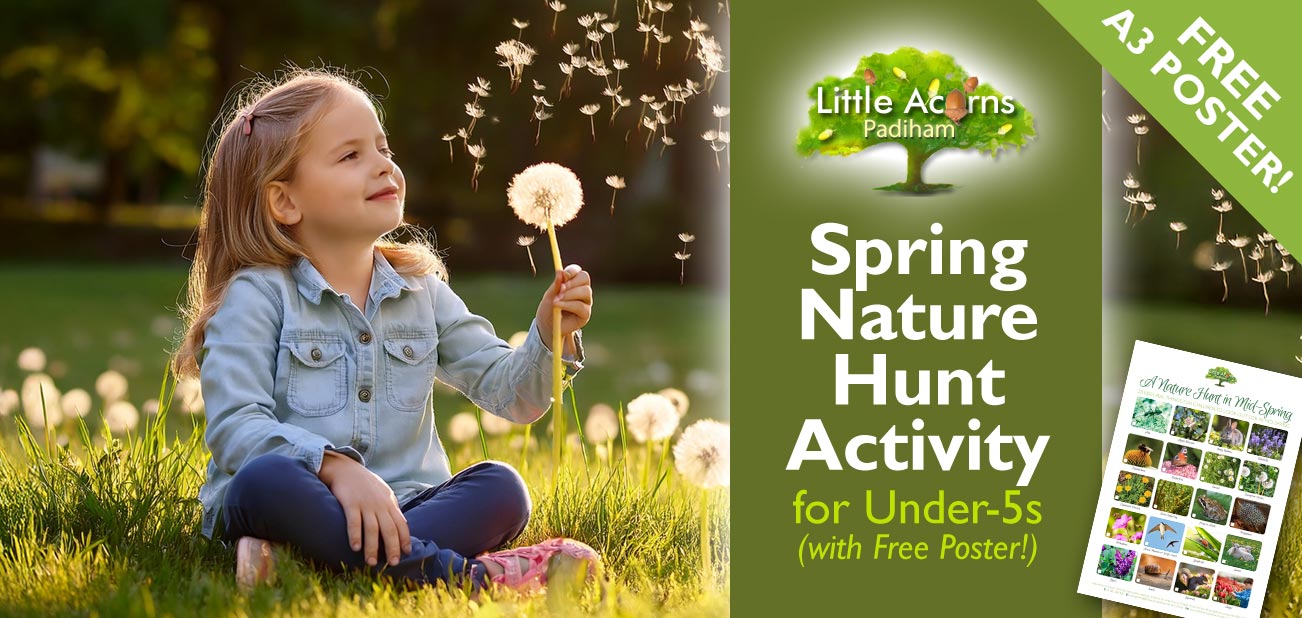A Quick Guide to Parenting Styles
— Which Style is Best?
There are many different ways to approach parenting. Sometimes, however, it can be a challenge to know which parenting style is the most appropriate for a child and a specific situation. Most parents will want their child to understand the boundaries they set, while also facilitating a happy, fun-filled childhood. Most will also want their children to be kind and respectful to others and become well-rounded, confident individuals. At the same time, parents will need to decide how strict or lenient they are in their parenting approach. Which style is best for the child? Terms like ‘gentle parenting’, ‘helicopter parenting’, ‘authoritative parenting’ and many others are often discussed online and in the press — but it may not be clear what each style means! That’s where today’s Quick Guide to Parenting Styles comes in. It should give parents a better idea of where their current parenting style fits in, and which style(s) may be the most beneficial for their child.
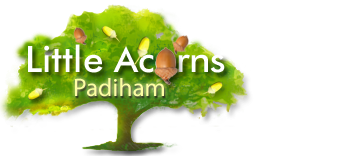
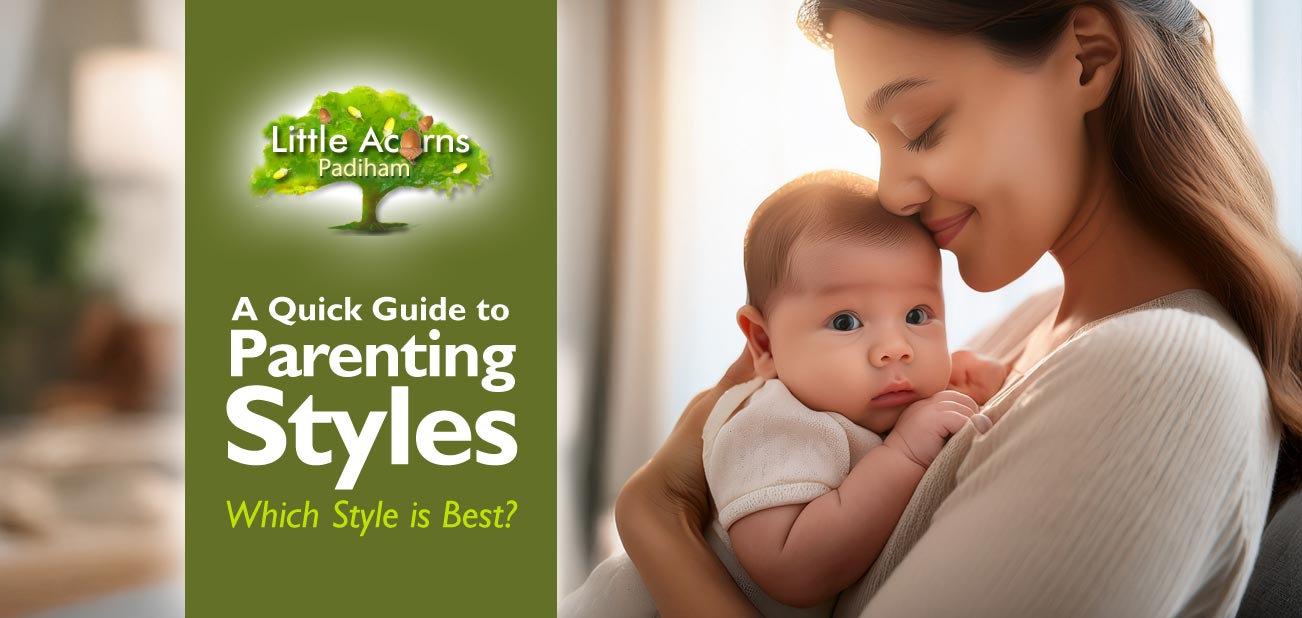

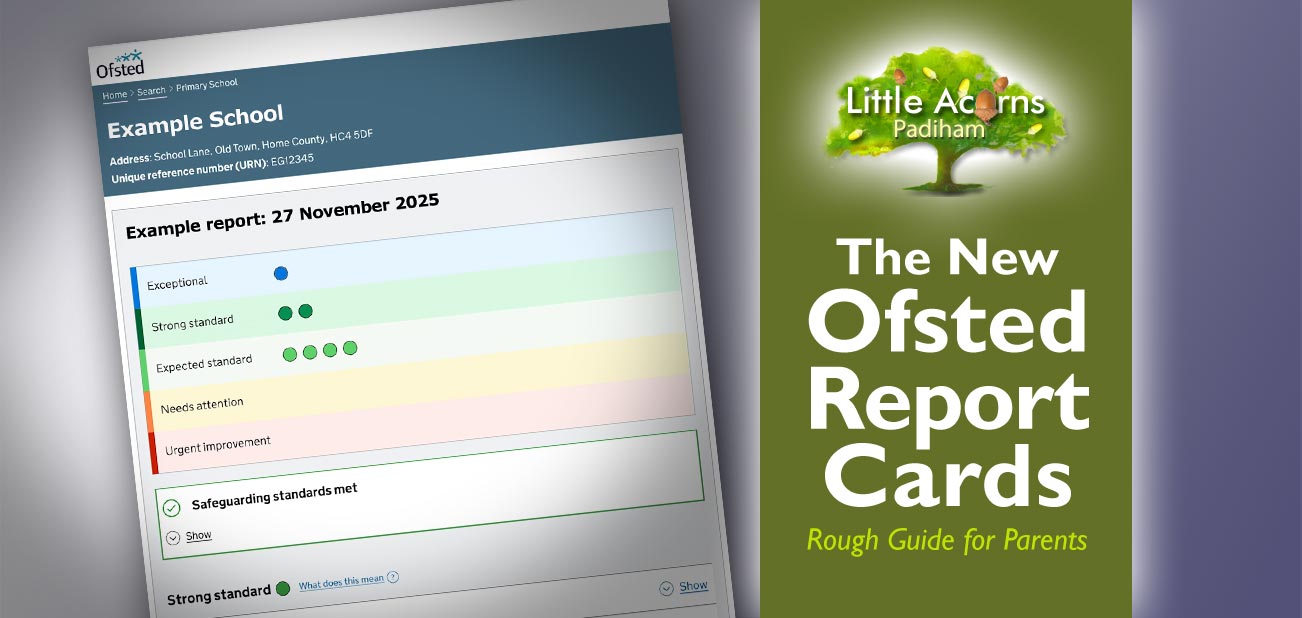
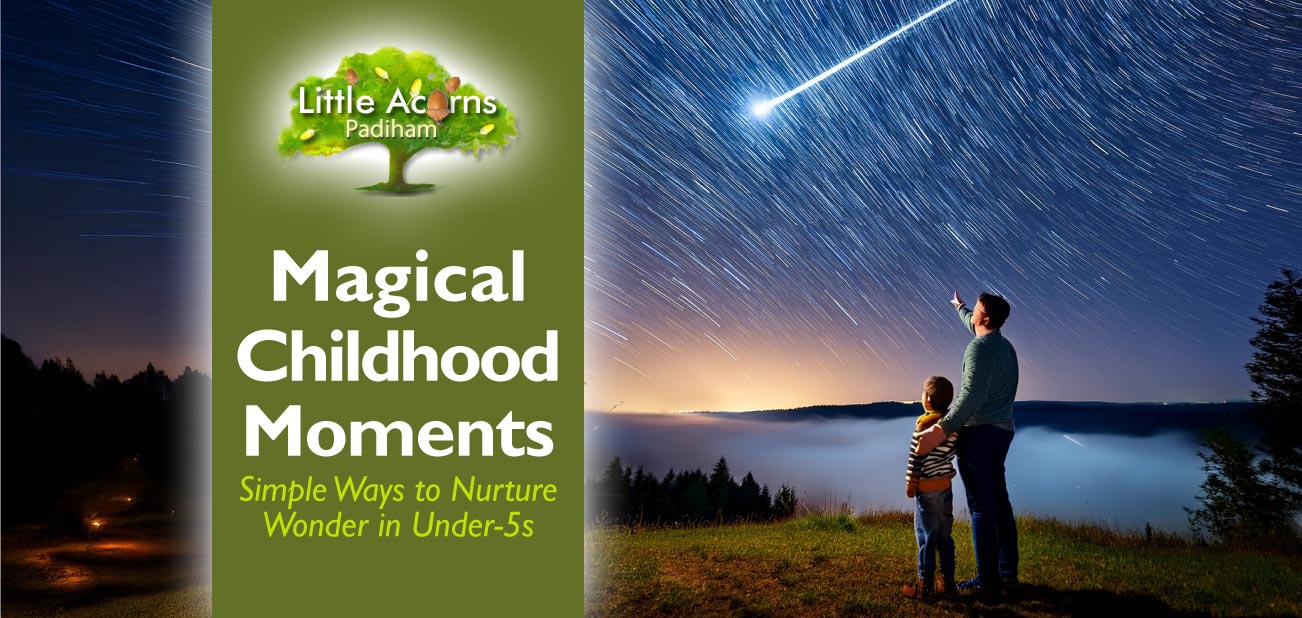
 Childhood is full of magic — not just the kind found in fairy tales, but also the quiet, everyday kind that’s instinctively fed by a child’s curiosity. Little ones have an innate sense of wonder; the world is vast, mysterious, and full of possibility. Whether they’ve discovered a camouflaged moth on a tree trunk, a rainbow stretching across the sky, or the miraculous shape of a fresh snowflake, each can feel like an amazing discovery to a young child. And they really are amazing!
Childhood is full of magic — not just the kind found in fairy tales, but also the quiet, everyday kind that’s instinctively fed by a child’s curiosity. Little ones have an innate sense of wonder; the world is vast, mysterious, and full of possibility. Whether they’ve discovered a camouflaged moth on a tree trunk, a rainbow stretching across the sky, or the miraculous shape of a fresh snowflake, each can feel like an amazing discovery to a young child. And they really are amazing!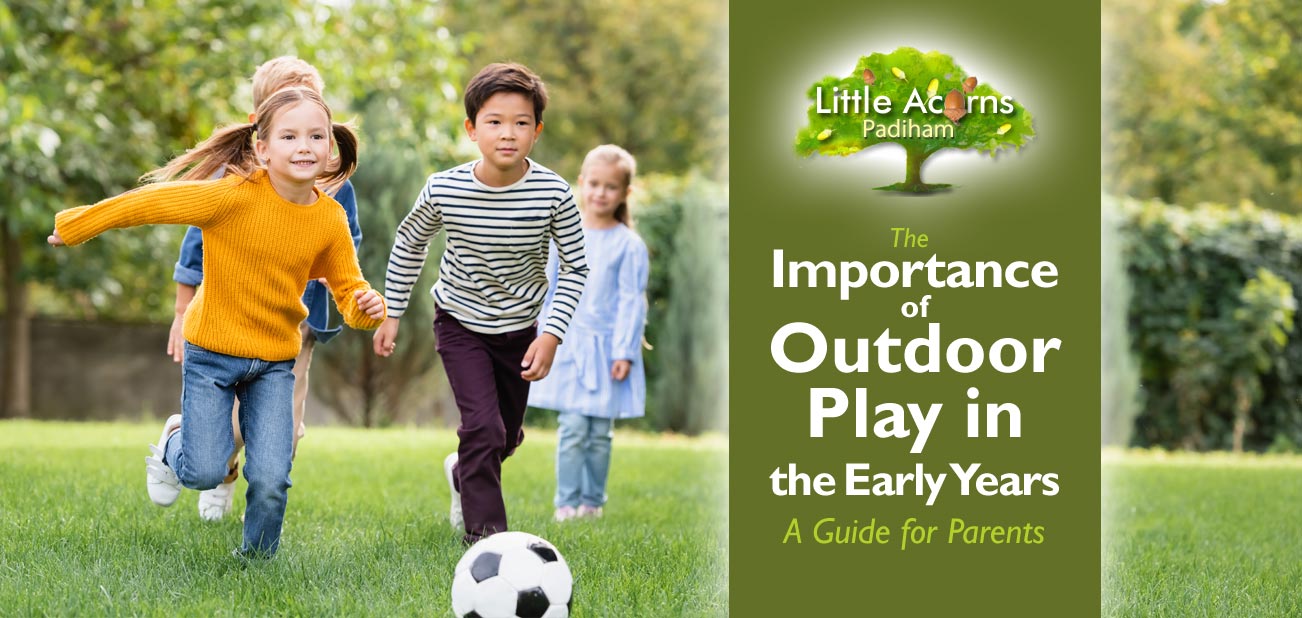
 There’s something truly magical about childhood spent outdoors — the feel of grass under little feet, the thrill of climbing onto a rustic log for the first time, the delight in spotting a ladybird on a leaf, or precious time spent playing with friends. However, in today’s busy, screen-filled world, many children spend far less time outside than previous generations. For children in their early years — toddlers and preschoolers — this simple joy isn’t just fun; it is essential for learning, growth, and wellbeing. Today’s guide explores why outdoor play is so important and offers practical ideas for making it part of everyday life.
There’s something truly magical about childhood spent outdoors — the feel of grass under little feet, the thrill of climbing onto a rustic log for the first time, the delight in spotting a ladybird on a leaf, or precious time spent playing with friends. However, in today’s busy, screen-filled world, many children spend far less time outside than previous generations. For children in their early years — toddlers and preschoolers — this simple joy isn’t just fun; it is essential for learning, growth, and wellbeing. Today’s guide explores why outdoor play is so important and offers practical ideas for making it part of everyday life.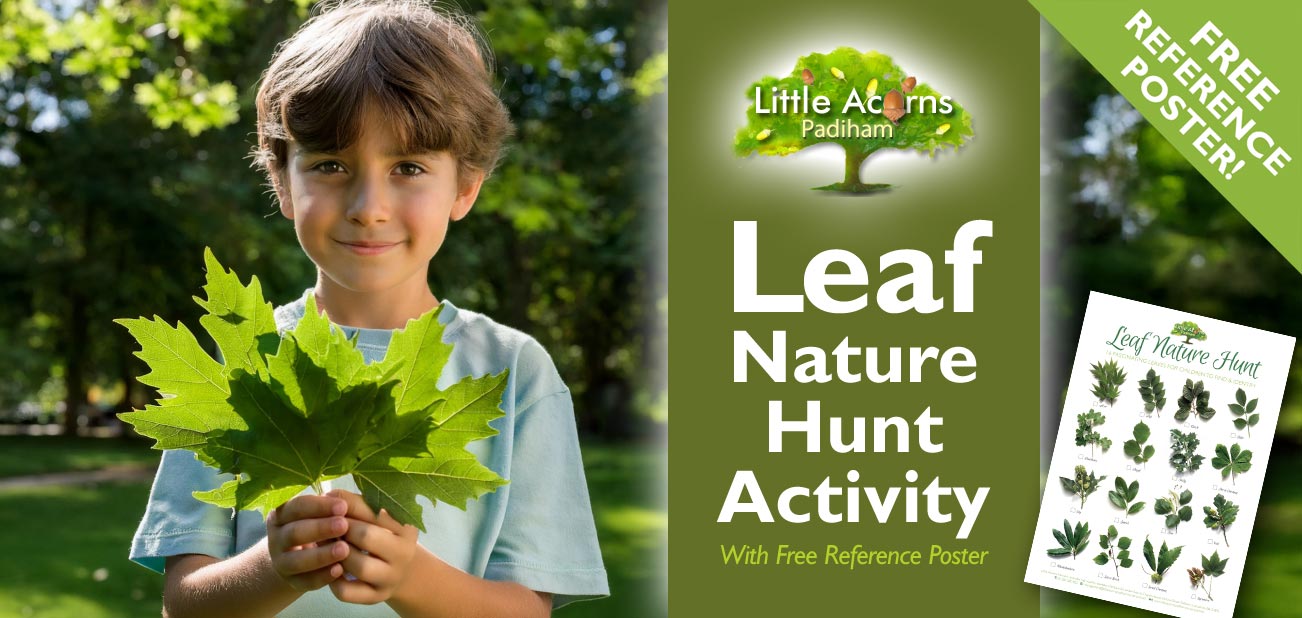
 Summer and autumn are wonderful times for children to experience nature in its full glory. At such times, the natural world is brimming with colourful flora and fauna, and it’s a spectacular feast for their eyes and senses. Outdoors, little ones can learn an enormous amount about the natural world around them, enjoy some fresh air and freedom – under supervision, of course — and reap the
Summer and autumn are wonderful times for children to experience nature in its full glory. At such times, the natural world is brimming with colourful flora and fauna, and it’s a spectacular feast for their eyes and senses. Outdoors, little ones can learn an enormous amount about the natural world around them, enjoy some fresh air and freedom – under supervision, of course — and reap the 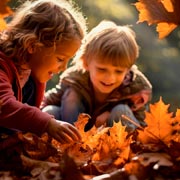

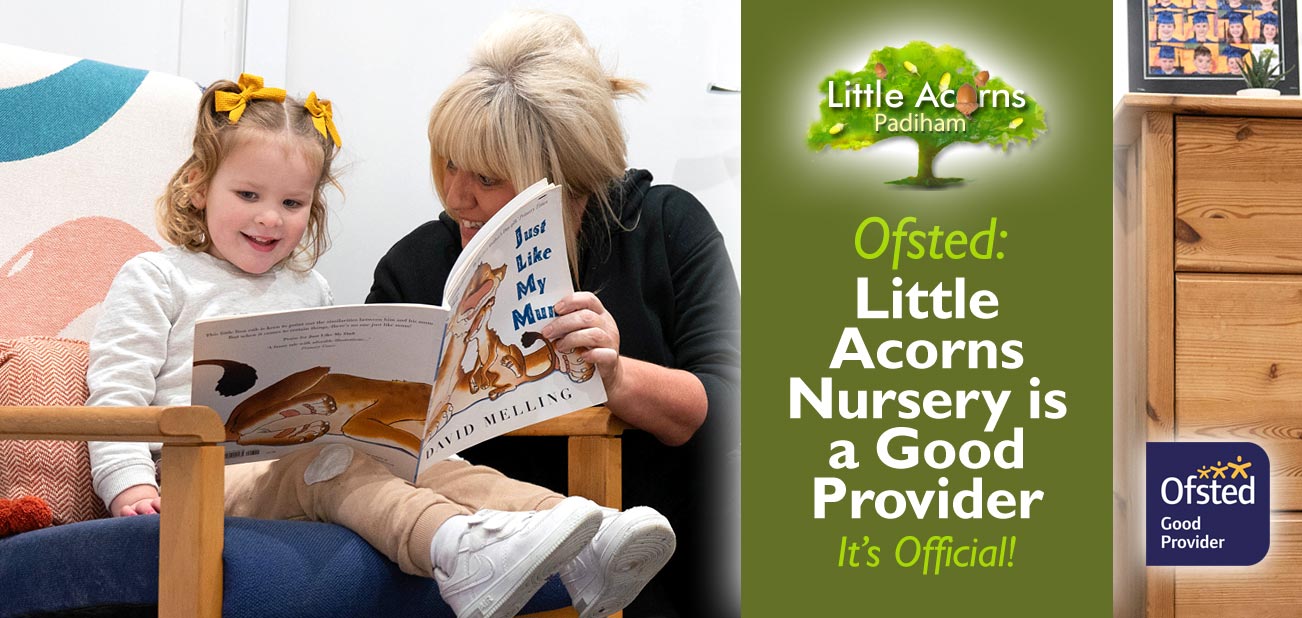
 We’re delighted to announce that Ofsted has published a stunning report for Little Acorns Nursery, Padiham. It’s now official that this excellent Padiham childcare setting is a ‘Good Provider’ — in every category! What’s more, the Ofsted inspector published some wonderfully positive comments about the nursery, staff, and quality of care as part of the report. Their findings are a testament to the high quality of the setting, the professionalism of its early years practitioners and leadership, and the positive impact the nursery has on babies and children in its care. Today, we take a deep dive into the details.
We’re delighted to announce that Ofsted has published a stunning report for Little Acorns Nursery, Padiham. It’s now official that this excellent Padiham childcare setting is a ‘Good Provider’ — in every category! What’s more, the Ofsted inspector published some wonderfully positive comments about the nursery, staff, and quality of care as part of the report. Their findings are a testament to the high quality of the setting, the professionalism of its early years practitioners and leadership, and the positive impact the nursery has on babies and children in its care. Today, we take a deep dive into the details.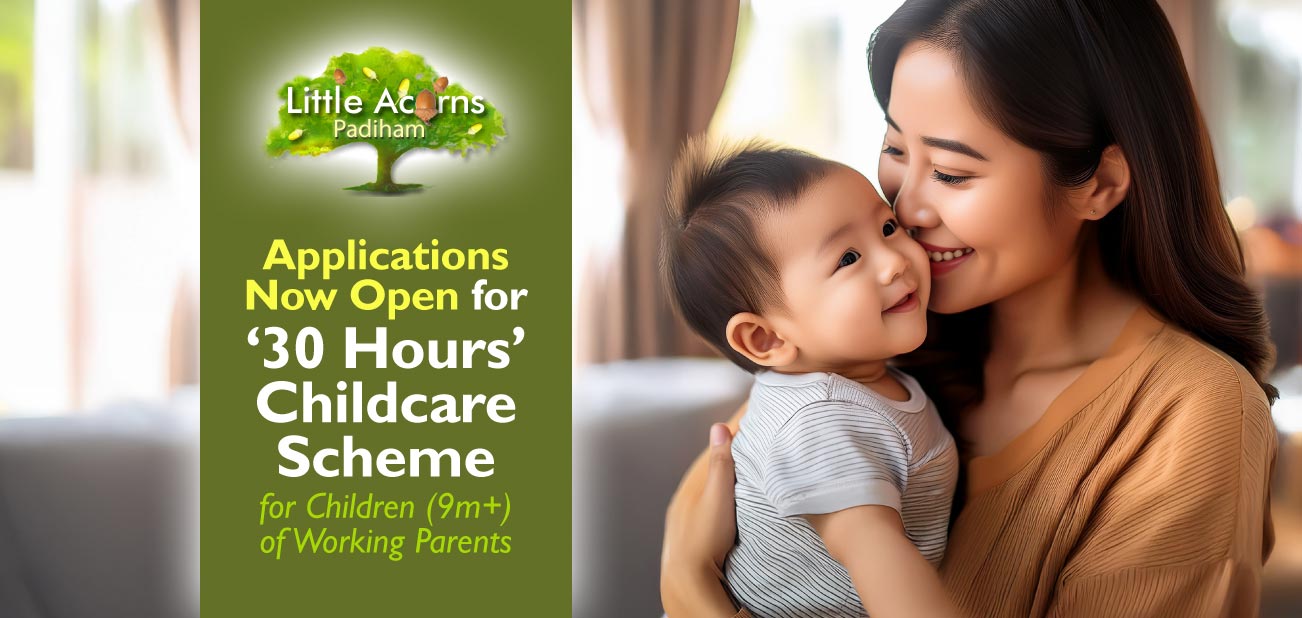
 Attention working families: applications are now open for eligible children, aged from only 9 months, to receive 1140 hours of free childcare per year from September 2025. What’s noteworthy is that this will be the first time such young infants and toddlers can access so many free hours. It effectively doubles the number of free childcare hours previously available to those under 2 via the scheme. The new, extended funding is for eligible working families, who now have until the 31st of August to apply if they would like their child(ren) to start in the September 2025 term.
Attention working families: applications are now open for eligible children, aged from only 9 months, to receive 1140 hours of free childcare per year from September 2025. What’s noteworthy is that this will be the first time such young infants and toddlers can access so many free hours. It effectively doubles the number of free childcare hours previously available to those under 2 via the scheme. The new, extended funding is for eligible working families, who now have until the 31st of August to apply if they would like their child(ren) to start in the September 2025 term.